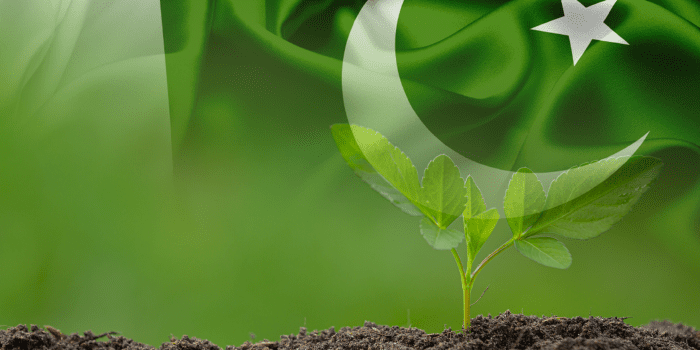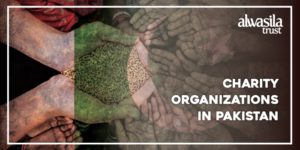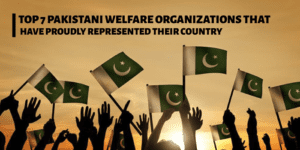Skipper Imran Khan has launched the Clean and Green Pakistan program on November 15th, 2019 to reduce environmental deterioration and enhance Pakistan’s sustainability by keeping their cities clean, improve public utilities, and foster a sense of pride in their communities by taking action against climate change. With this initiative, local communities may join forces to fight for environmental preservation as a shared goal and mitigate global warming by restoring the ecosystem. The degradation of Pakistan’s environment has reached an all-time high, and ecological devastation and poverty have resulted from rapid urbanization, deforestation, and the absence of sustainable energy supplies.
Pakistan’s Ten Billion Tree Tsunami Project has proved it is ready to lead the way in ecosystem restoration as Clean and Green Pakistan, the nation gears up for World Environment Day on June 5. The billionth tree has just been produced as part of the initiative launched in 2019. To support the UN Decade and boost ecosystem restoration in Pakistan, large-scale projects like the Ten Billion Tree Tsunami Project are critical to the country, helping us attain a Clean and Green Pakistan. Due to the country’s dry and semi-arid climatic conditions, Pakistan has barely 5% forest cover. An increase in forest areas would also result in the regeneration of animal resources and boost the zoological surveys of Pakistan.
Despite the country’s lack of forest cover, Pakistan has a remarkable variety of habitats and species. From the Blind Indus Dolphin in the South to the Snow leopard in the Rough Mountains in the North, the variety of wildlife is astounding. Deforestation and degradation of forest ecosystems are typically caused by unsustainable forest management methods and the high dependence of local populations on forests to supply a broad range of requirements, which often culminates in deforestation. Communities, ecosystems, and biodiversity in Pakistan have been significantly affected by forest degradation in Pakistan. Resources associated with forests are dwindling as their size decreases.
The theme of the program, “My City, My Responsibility,” is to get people to help clean up their cities and improve public services on their own time. The goal is to give people a sense of ownership over their homes and cities. It is a very innovative course of action. After starting the campaign to plant 1 billion trees in KPK and 10 billion trees across the country over the next years.
The Safaiwala project is another brilliant Alwasila Trust idea that considers the growing pollution and dispersed garbage on the ground and has made its contribution to help the “Clean and Green Pakistan” initiative. The Alwasila Trust established the Safaiwala initiative to keep the nation clean and prosperous. To benefit the poorest segments of society, waste from homes is recycled. Alwasila utilizes the money it earns from selling dry rubbish to aid the underprivileged in our community to finance other charitable endeavors. As an alternative to traditional garbage cans, Alwasila sells biodegradable waste bags, a more eco-friendly solution for sustaining the environment’s momentum.
- Nestle:
Pakistan is working with the essential parts of this movement to start a campaign to raise awareness about climate change as part of its Hygiene Awareness, Access to Safe Drinking Water, and Tree Plantation initiative.
- Coca-Cola:
As part of the government of Pakistan’s “Clean and Green Pakistan” initiative, Coca-Cola Pakistan launched a new campaign in Nathia Gali as a sustainable environment vision collecting trash from the area partnered with the residents.
- DHL Pakistan:
DHL Pakistanas put in place innovative green logistics solutions to make supply chains more environmentally friendly and help the “Clean and Green Pakistan” initiative reach its environmental goals. Imran Khan has emphasized this time and time again on increasingly severe urban haze pollution.
- Shell Pakistan:
Shell Pakistan recognized that climate change is a problem and that energy is essential for a good quality of life. They believe that new technologies will be made. However, effective policy and cultural change are needed to give businesses and consumers more low-carbon options and choices.
- National Foods:
National Foodshas set out with the mission to have a significant and beneficial effect on our environment, lessen our carbon footprint, and educate people about the potential of recycling and reusing materials.
As part of this incredible endeavor to make Pakistan greener and cleaner, educational institutions in Pakistan have also scaled up their efforts to avoid climate change and global warming. This is only one step in the right direction. The Govt. Associate College for Women Dina has also played its part in effectively supporting the “Clean and Green Pakistan Campaign”.
Battling land degradation and restoring critical ecosystems is the key to relieving the country’s poverty difficulties. Climate change has harmed Pakistan’s agricultural community, resulting in a significant loss. In the wake of the country’s polluted air and the rising frequency of natural disasters, the administration is pleading for community unity and environmental balance. For a clean and green Pakistan, let us join hands and do our bit and make Pakistan beautiful!








